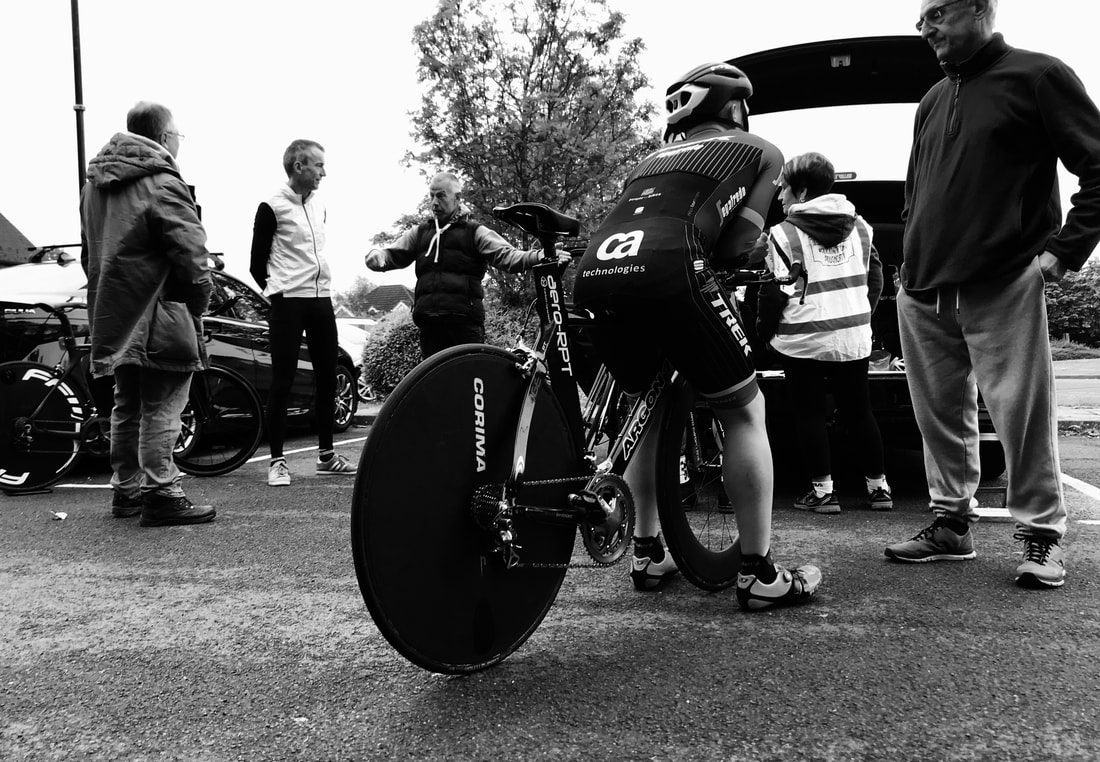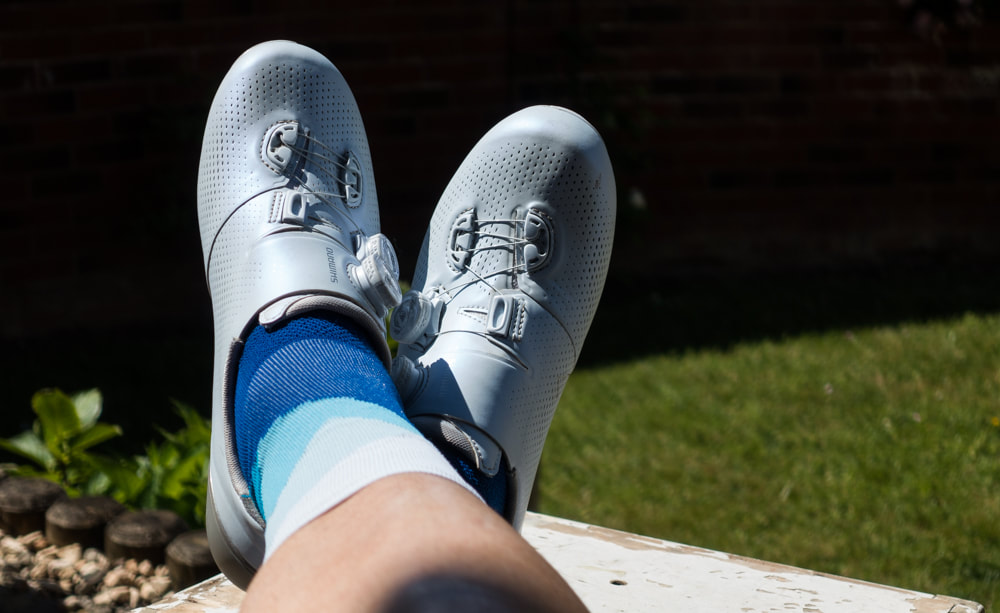|
Good news, subject to stringent Covid-19 safe risk assessments it looks like local time trials and some socially distanced club activities can recommence from mid-July in England. It feels like positive progress, right? If your club has both the organisational minerals to comply with the rules and regulations and a bucket of hot and soapy to wash numbers in, it’s time to consider re-engaging. If you had a good winter’s training but you’ve been poling around on your road bike for the last few months, don’t put too much pressure on yourself to return to race fitness, smash out PBs or bust Strava segments immediately. However, there are a few things you can do both psychologically and physiologically that might help you along the way Get specific – spend some time, at power, in aero position on the TT bike if you’re going to race time trials. It takes a little time to get comfortable and put power down in aero position and it you’ve been doing 'hello trees, hello flowers' rides for a while, there’s likely to be a period of transition. There are some specific drills you can do in relatively little time that will help – see me after class. Manage your expectations, but race - don’t stress about hitting last years times or that you’ve put some weight on, just pin a sanitised number on and get stuck in. Very few riders can train as hard as they race and missing a whole season’s worth of racing is going to make next winter interminable and next season harder. Don't worry about the results or times, just focus on the process. Zwift is different – turbos are a great training aid but don’t expect all your efforts to directly translate to racing or training on the road. Bikes don’t move on turbo trainers whereas resistance tends to be constant (it’s what makes them so great). You might find your power up (maybe all that fresh air?) but your watts/per kg down (because fibbing about your weight has no effect outside of the matrix?). Gather data – track and record your race or training data even if you wince a bit when looking at your power curve, times or grindy cadence. It will benchmark your current fitness (whatever that might be) and you can use it to guide your training zones. Your first race back will give you a good indication at where your intervals should be set. If you do get stuck in, it would be reasonable to expect some fairly rapid progress from Plateau Covid back towards Mt Fitness. Sitting at home worrying about not being fit enough to race is not going to help. Comply - have some fun but please comply rigorously with the guidance on how to engage safely with an event. Bear in mind drivers won’t be used to seeing groups of riders or people racing for a while. They are scared and anxious which means they are liable to do more dumb shit than normal. Ride defensively with your head up. Thank the organisers and give them a virtual hug because they will have gone above and beyond to get some racing and/or club activities on this year. PS. Remember your flashing light and a pen! Rich Smith has had some weird diseases and doesn't want any more so he washes his hands regularly. He has coached the GB Transplant Cycling team for 10 years, is a British Cycling qualified Level 3 coach and a mature psychology student. He spent 30 years responding badly to people in authority in senior roles for Barclays, HSBC, British Waterways and National Grid Property.
2 Comments
During lockdown, whilst many of us are finding we have spare time, we are also coping with the duel psychological challenges of lockdown and the absence of goals or target events. It’s a perfect, if very unusual, storm and looking at the data coming back from my riders, I’m finding myself telling them to rest more. Tricky stuff. Advising an endurance athlete to rest when they have spare time is like nailing jelly to the ceiling. ...Recovery is not something you do after training, it is training... To explain why rest is important, it’s worth briefly referencing the Principles of Conditioning – those fundamental tenets of how training works, the main elements being. Overload Recovery Adaption You overload your system by training with a combination of volume and intensity and, with the right amount of recovery, your body adapts to cope with increased demands. Recovery sits in the middle of these three pillars. It's not something you do after training, it is training. Recovery can be framed as anything from a few seconds between sprint intervals to 6 weeks off after the Tour or pretty much anything in between, but it’s important to understand that recovery is an integral part of the training process, not an adjunct to it. But we are in the strangest of strange times right now, as athletes and coaches we have the unprecedented challenge of balancing uniquely peculiar circumstances against the physiological and psychological risks of under-recovery. It’s natural to want ride if we have the time, we’re cyclists, we enjoy riding. Plus, it gets us out of the house in the fresh air and exercise gives us a mental boost – simply, it makes us feel better. So, the sun is shining, we extend our 1 hour session to 2 hours, do a 60 min ‘recovery’ ride a couple of times a week, throw in some ‘hello trees, hello flowers’ rides to control weight. Not unnatural things to do in the circumstances. All of these are probably necessary, perhaps even essential, in these bizarre times and frankly, none of them are likely to do any harm at all. Staying motivated to ride and maintaining a level of fitness is important, but don’t forget to build in some recovery time as an integral part of your training – it is essential for your physical and psychological well-being. A few things to think about if you’ve found yourself doing a lot more steady miles recently.
Rich Smith knows loads about resting having recently slept through a three and a half hour showing Robert de Niro's 'The Irishman'. Apparently, a lucky escape on his part. He has coached the GB Transplant Cycling team for 10 years, is a British Cycling qualified Level 3 coach and a very mature psychology student. Before upsetting film buffs, he spent 30 years upsetting people in senior roles for Barclays, HSBC, British Waterways and National Grid Property.
|
AuthorThe ramblings of a cycling coach... Archives
May 2024
Categories |
|
© COPYRIGHT 2022. ALL RIGHTS RESERVED.
|


 RSS Feed
RSS Feed
